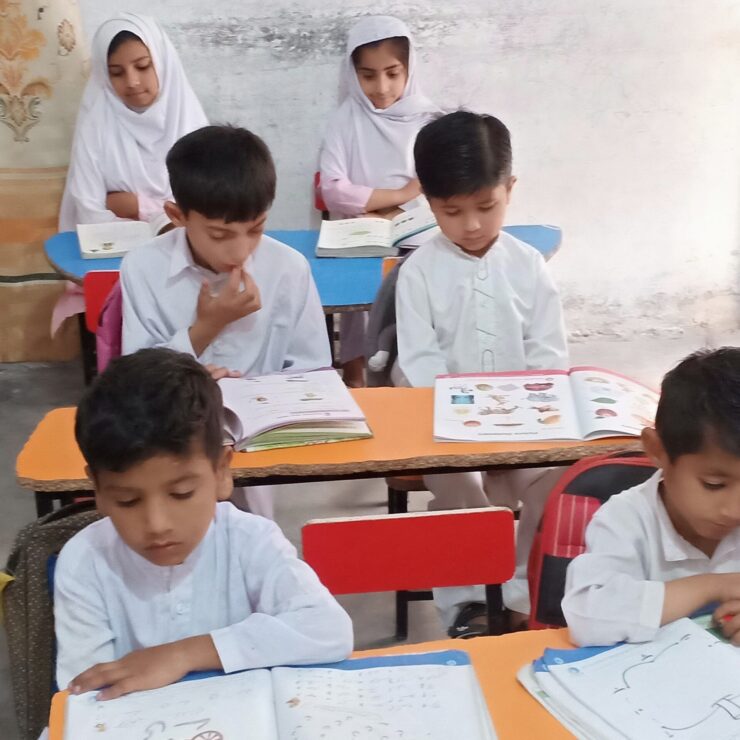
Educational Institute
The Core Purpose of Educational Institutes
Educational institutes, from primary schools to universities, serve as pillars of knowledge and skill development. The core purpose of any educational institute is to educate and prepare individuals for their roles in society, equipping them with the knowledge and skills needed to succeed in life and make positive contributions to their communities.
However, the benefits of educational institutes extend far beyond the individuals who attend them. By promoting values such as empathy, resilience, and critical thinking, these institutions play a crucial role in fostering a responsible, socially aware, and well-informed population
Key Roles of Educational Institutes in Community Development
Educational institutes contribute significantly to community development in several ways:
Empowering Individuals through Knowledge and Skills
Educational institutes are vital in helping individuals gain essential knowledge in subjects like mathematics, science, language, and social studies. They also equip students with skills that are critical in the modern world, such as critical thinking, communication, and problem-solving. With these tools, individuals can access better employment opportunities, contribute effectively to society, and support the growth of their communities.Reducing Poverty and Inequality
Education is one of the most powerful tools for breaking the cycle of poverty. Children from low-income families, who may otherwise struggle to access resources, can benefit from educational opportunities that level the playing field. Educational institutes create pathways out of poverty by providing individuals with the means to improve their economic circumstances, ultimately leading to a more equitable society.Promoting Social Cohesion and Unity
In educational institutes, students from diverse backgrounds come together, sharing experiences, learning from one another, and building friendships. This environment fosters a sense of community, mutual respect, and understanding, which are essential for social cohesion. Educational institutes encourage inclusivity and help build a society where people appreciate and respect each other’s differences.Encouraging Innovation and Economic Growth
The world today is driven by innovation, and educational institutes play a critical role in fostering creativity and innovative thinking. By offering students the chance to engage in scientific research, technological advancements, and entrepreneurial activities, these institutions contribute to the economy. Skilled graduates drive economic growth by starting businesses, advancing technologies, and addressing local and global challenges with innovative solutions.Raising Health and Environmental Awareness
Educational institutes often integrate health, hygiene, and environmental education into their curriculums. This awareness helps students understand the importance of a healthy lifestyle and environmental responsibility. A well-educated population makes healthier choices, engages in practices that protect the environment, and helps address issues such as climate change, pollution, and public health challenges.
The Long-Term Impact of Educational Institutes on Society
The influence of educational institutes extends far beyond the individuals who attend them. By nurturing educated and socially responsible citizens, these institutes drive positive social and economic change on a large scale. Here’s a closer look at some of the long-term impacts:
Creation of a Knowledgeable and Skilled Workforce
A community with access to quality education produces a knowledgeable and skilled workforce, which attracts businesses and creates job opportunities. This, in turn, leads to economic growth, improved infrastructure, and a higher standard of living for the community as a whole.Reduction in Crime and Social Issues
Education plays a significant role in reducing crime rates by providing individuals with opportunities for personal growth and economic stability. A well-educated population is less likely to engage in criminal activities, as education fosters values of responsibility, empathy, and resilience.Increased Civic Engagement and Political Awareness
Educated individuals are more likely to participate in civic activities, such as voting, community meetings, and advocacy efforts. Educational institutes instill a sense of civic duty, empowering individuals to engage in issues that affect their communities and contribute to a more democratic, inclusive society.Healthier Population
Education promotes awareness about health and hygiene, leading to healthier lifestyle choices. Communities with high literacy rates typically have better healthcare outcomes, as educated individuals are more likely to seek medical help, follow hygiene practices, and make informed decisions about their health and well-being.Environmental Sustainability
As more educational institutes incorporate environmental education into their curriculums, communities are becoming more environmentally conscious. This promotes sustainable practices, such as waste reduction, recycling, and renewable energy use, ultimately leading to healthier, more sustainable communities.
The Role of Community in Supporting Educational Institutes
Community involvement is critical to the success of any educational institute. When communities are engaged in supporting schools, both the institutions and the students benefit immensely. Here’s how community members can contribute:
Funding and Resources
Financial support from individuals, businesses, and organizations can provide educational institutes with resources to enhance learning facilities, hire qualified teachers, and offer scholarships. Community support can make education more accessible to underprivileged students, ensuring that no one is left behind.Parental Involvement
Parents play a key role in the success of educational institutes. When parents are actively involved in their child’s education, students tend to perform better academically and socially. Parents can support their children by attending school events, volunteering, and maintaining open communication with teachers.Volunteering and Mentorship
Community members can also contribute by volunteering as mentors, guest lecturers, or by offering after-school tutoring. These efforts can have a lasting impact on students by exposing them to real-world experiences, career advice, and personal support.Advocacy for Quality Education
Advocacy is essential for the continued improvement of educational standards. Community members can advocate for better policies, resources, and educational opportunities by participating in local government meetings, supporting educational initiatives, and working to bring positive changes to the system.




